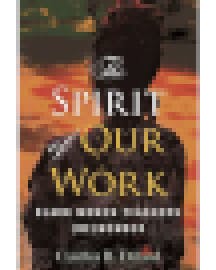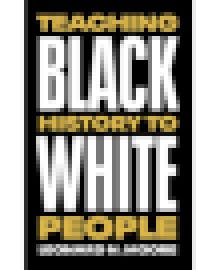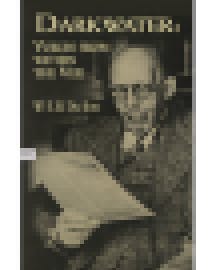Aniefuna means “my land is not lost.” It looks hard to say, but really, it sounds just like it looks. My wife and I chose this last name before starting our family. It’s a West African name, originating within the Igbo ethnicity, which is one of many ethnicities on the African continent and now across the African diaspora (1).
I started learning about the diaspora through books and archives when I attended a historically Black university (HBCU) for graduate school. I learned truths about European imperialism and the humanness before slavery — how colonists from all over Europe stuck their flagpoles into African soils, controlling nations and influencing heritage for centuries. I learned how the absence of so many Igbo and Yoruba people felt for some growing up in West Africa under European reign. Humanizing pre-colonial history catapulted a spiritual reckoning and unlocked a familiar wholeness for me. My desire to know exploded.
From studying African and Black American history, I developed what Joyce E. King calls “diaspora literacy” to contend with the reflection of white supremacy in my paternal lineage and its connection to world history. Although Black Americans reinvented and established a unique culture, we’re eternally connected to the sub-Sahara. My wife and I chose Aniefuna because in studying Black history, we learned that our land was never lost. As I write this, the swatch of emotions is reignited — the darkness and lightness of discovering the reflection of white supremacy in my blood and how it connects to the privilege of my racial ambiguity. Creating generations of Aniefunas was our way to try to reconcile our values with the traumas of our family history.
I share this story not to encourage people to adopt African names, but because learners and educators should not have to attend graduate school to learn truths about pre-colonial Africa and American history. Amid bans on teaching Black history and calculated attempts at falsifying history, we all need a recalibration in the importance of telling full stories about America’s past and present. Oral history has preserved Black history, and sharing these stories across generations will preserve truths and offer a blueprint for the future.
These six books, with varying perspectives, retell significant well-researched stories about eras of Black history — clearing up some myths, providing context, and offering resources for teaching, learning and understanding the wholeness of Black history.

“The Spirit of Our Work: Black Women Teachers (Re)Member” by Cynthia Dillard, Ph.D. (2021)
Dillard’s “Spirit of Our Work” is transformative. A lot of her work is, and this is the latest demonstration of her contributions to education. Throughout the book, Dillard shares her self-reflection from her travels to Ghana and subsequent returning every year for the past 30 years. Dillard writes, “I think the desire to know Africa has always lived in me.” She shares that she began inviting Black women educators on these trips, which served as a vehicle for them to experience spiritual reimagining. Dillard encourages Black women educators to reflect on how the legacy of the intersections of race, gender, class, and the African diaspora connects to their powerful teaching approaches. Dillard demonstrates remembering and reclaiming the wholeness of her identity and channeling that spirit into her work as an educator and scholar. This book is so captivating because of Dillard’s conversational writing style, her deep self-reflection and the clever play on words throughout the text. Two of my favorite sections are: “To be a Black woman with roots and routes” (p. 71) and “Spiritual reckoning: (Re)cognizing in the Cape Coast Dungeon” (p. 91).

“We Be Lovin’ Black Children: Learning to be Literate About the African Diaspora,” edited by Gloria Swindler Boutte, Ph.D., Joyce E. King, Ph.D., George L. Johnson Jr., Ph.D., and LaGarrett J. King, Ph.D. (2021)
“We Be Lovin’ Black Children” is a short book packed with resources and activities for teaching the fullness of Black history and the African diaspora. It opens with an explanation of its title and its connection to Black culture. The chapters in this anthology illustrate the magic of educators co-creating with students and sharing power to uplift students’ voices. Multiple chapters are co-authored with teachers and students, and several chapters are written by teachers. What I love about this book is that it is for all educators — teachers, parents, community organizations — to use to connect with Black children and teach what the authors call diaspora literacy.

“Teaching Black History to White People” by Leonard N. Moore, Ph.D. (2021)
Moore is a scholar and professor of history whose passion for teaching oozes off the page. Moore writes about how teaching fuels him, and “Teaching Black History to White People” illustrates his uniquely engaging pedagogy that has won awards and made Moore a highly respected and sought-after professor and speaker. If you don’t believe me, check out some of his recorded lectures. What I like most about this book is that Moore explains how teaching Black history, something he’s done for three decades, was different during the 2020 racial uprisings, and he provides actionable insights for white people (or any non-Black person) to counteract anti-Blackness and racism in America.

“Transforming the Elite: Black Students and the Desegregation of Private Schools” by Michelle Purdy, Ph.D. (2018)
Purdy’s “Transforming the Elite” shines a light on a lesser-discussed part of America’s history of segregation — private schools. Purdy conducts a deep dive into the history of desegregation in Georgia with an examination of a prestigious Atlanta private school, which was part of a movement of “segregationist academies” (p. 4) in the 1960s, when public schools were required to racially integrate. Purdy dissects the logic, politics, and the financial and social implications that influenced segregationist academies like The Westminster School (and other schools part of the National Association of Independent Schools) to drop the moniker and racially integrate when Brown v. Board of Education did not compel private schools to do so.

“They Were Her Property: White Women as Slave Owners in the American South” by Stephanie E. Jones-Rogers, Ph.D. (2019)
The most common tropes of the history of the institution of enslavement — what we learn in school (if not banned) and in movies — is that white women’s participation was limited to being innocent bystanders. And if they engaged in violence, it was because they were victims of infidelity and jealousy when their husbands raped enslaved humans. Jones-Rogers lifts this ambivalent patriarchal veil to expose that many white women, whether wives, widows, aunts, daughters or nieces, were active participants in enslaving Black Americans, including inheriting land and humans as property, and perpetrating the brutalities of forced human breeding, whipping and killing. We’re sometimes told that women were incapable of such violence, but Jones-Rogers demystifies this inaccuracy. She retells history with expert analyses of historical artifacts, primary sources and thorough research. “They Were Her Property” offers a candid revision of American history around slavery, violence and gender roles that can inform any audience of unfiltered truths about white women’s contributions to chattel slavery.

“Darkwater: Voices from Within the Veil” by W.E.B. Du Bois, Ph.D. (1920)
“Darkwater” is within my top three favorite Du Bois classics. I became a “Du Boisian scholar” during my first year of graduate school, where I learned that much of his work underpins sociological theory and research methods, despite contemporary sociology largely erasing his pioneering contributions. My favorite Du Bois publication is “The Philadelphia Negro,” for which he conducted the first Black census, published in 1899. Du Bois ultimately became a leader of sociology and Black intellectual thought, and one of his later texts, “Darkwater,” was a poetic autobiographical collection of essays, poems and prose. This book offers a window into the personal experiences that informed Du Bois’ work, and its conversational tone makes it a more accessible text than some of his academic research publications.
(1) Diaspora refers to the involuntary extradition of Africans from the African continent to other parts of the world, largely because of the trafficking of humans during the trans-Atlantic slave trade. The term is also sometimes used to explain the contemporary voluntary migrations of African people around the world.


